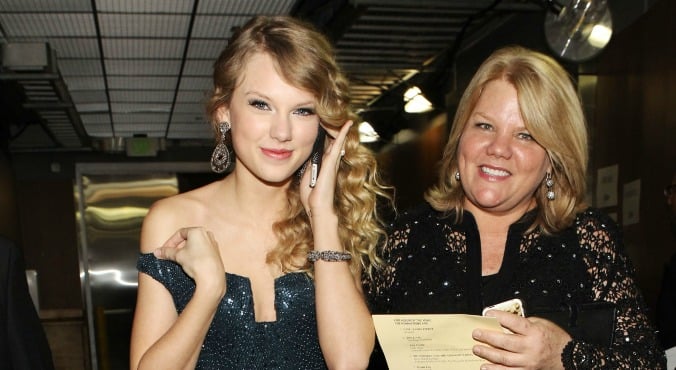
Image: Taylor Swift and her mum Andrea in 2010 (Getty)
Even if her music isn’t your cup of soup, you have to admire the effort Taylor Swift channels into forging a warm, personal relationship with her fans.
Follow the 25-year-old pop star on any of her social media platforms for long enough, and her photos, videos and anecdotes will make you feel like you’ve known her — and all her friends, family members, and two adorable cats — for years. (Post continues after gallery.)
Taylor Swift on Instagram
Last night, the Shake It Off singer posted a new, deeply personal update for her thousands of Tumblr followers — only this time, it was to reveal some terribly sad news about her mum Andrea Garner Finlay.
“I’m writing to you with an update I wish I wasn’t giving you, but it’s important and I’m used to sharing important events in my life with you,” Swift begins.
RELATED: Someone mashed Taylor Swift’s ‘Shake It Off’ with an 80s aerobic video
“For Christmas this year, I asked my mom that one of her gifts to me be her going to the doctor to get screened for any health issues, just to ease some worries of mine … The results came in, and I’m saddened to tell you that my mom has been diagnosed with cancer. I’d like to keep the details of her condition and treatment plans private, but she wanted you to know.”
Having a friend, family member or even an acquaintance diagnosed with cancer, or any serious medical condition, is enough to shake anyone to the core. It’s also heartbreaking when someone you know receives devastating news like this.

